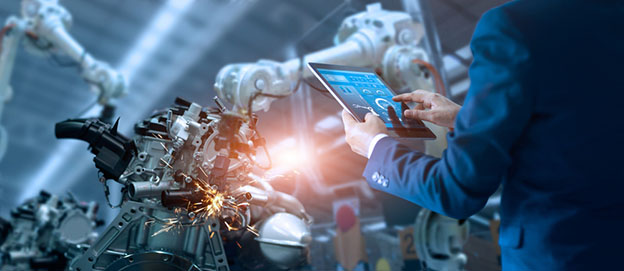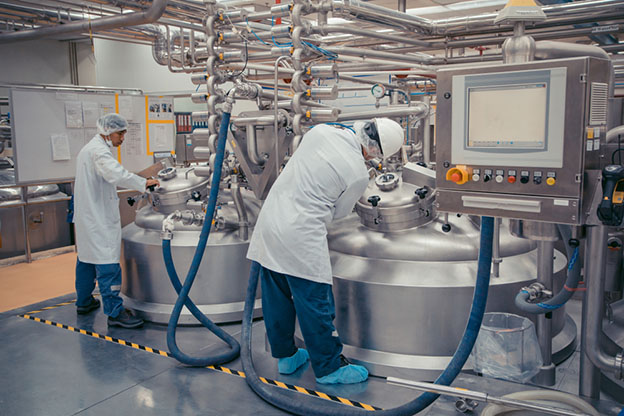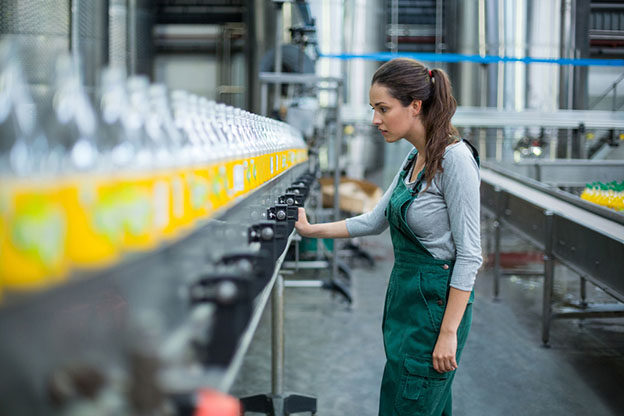
Source: PopTika/Shutterstock.com
Discrete and process are considered the two main types of manufacturing. Both are used by different industries and result in different approaches to production. Some companies may use a combination of the two, but it all depends on the product in question and how it’s made. Let’s explore the differences between discrete and process manufacturing and what they mean for the workplace.
Discrete Manufacturing
Discrete manufacturing refers to the process of building up a product piece by piece. Companies will often use an assembly line to connect individual parts and supplies until they result in a finished product. In most cases, the pieces will need to be assembled in a specific way or order so they work in tandem with one another. If a piece goes missing or is not inserted correctly, the product won’t be able to proceed onto the next phase of production, or it may fall apart or be defective.
Order Your Collapsible Bulk Containers Today!
These items can usually be disassembled just as easily as they are put together. Manufacturers can remove individual parts until the item has been deconstructed, and all the items should still be in working condition.
Industry Examples:
A prime example of discrete manufacturing is the automotive industry. Manufacturers typically fit together tens of thousands of individual parts to make the finished vehicle using a combination of automated machines and human workers.
Individual parts and accessories are usually stored in separate containers so workers and machines can retrieve them quickly during the production process. Auto parts range from small screws and bolts to large tires and metal frames. Facilities will often use collapsible bulk containers as a way of organizing these materials. As inventory levels change, workers can quickly break down these containers to make better use of the space.
These facilities will also use metal storage bins and wire baskets to keep large items visible on the factory floor, such as tires, wheels and engines. This makes it easy to identify the contents and managers can quickly place another order when supplies run low.
Source: noomcpk/Shutterstock.com
Process Manufacturing
Process manufacturing refers to the idea of mixing together different supplies and ingredients so they physically merge into a finished product. Once mixed together, these ingredients cannot be retrieved. They are physically altered during the manufacturing process as they are absorbed into the whole. This makes it impossible to reverse the construction process.
Metal Storage Bins Are Necessary For Streamlined Manufacturing
Companies must regulate the production process carefully to make sure they adhere to the exact recipe or formula. If too much of one ingredient is used, the entire batch may be unusable, dealing a blow to the company’s finances. Individual ingredients and supplies are often stored in pre-measured containers to expedite the production process.
Both discrete and process manufacturing are subject to quality control. With discrete manufacturing, the product is often tested to make sure it turns on and functions properly. With process manufacturing, the quality of the product may be difficult to determine. The final batch may need to be analyzed or tested in a lab setting before it can be released to the public.
Source: wavebreakmedia/Shutterstock.com
Industry Examples:
Food processing is perhaps the best example of process manufacturing. These companies often create their products at scale as they manage large volumes of flour, grains, water, milk, sugar and other essential ingredients. This process is often used to make salad dressings, yogurt, juice, baked goods and other types of food and beverage products.
Industrial chemical and solvent manufacturers will use a similar method to develop their products. They will combine different ingredients, many of which may be considered hazardous, to create a fluid or gel that can be deployed in the field.
These industries tend to be subject to strict safety requirements. Learn about the many issues facing these kinds of manufacturers to come up with the right strategy in international process manufacturing.
Knowing the differences between process and discrete manufacturing is a must when you’re in the warehouse business. Each process contains certain subtleties that can have a major effect on your operations and throughput. Use this information to better manage your supplies and ingredients to make sure they end up in the right place.

